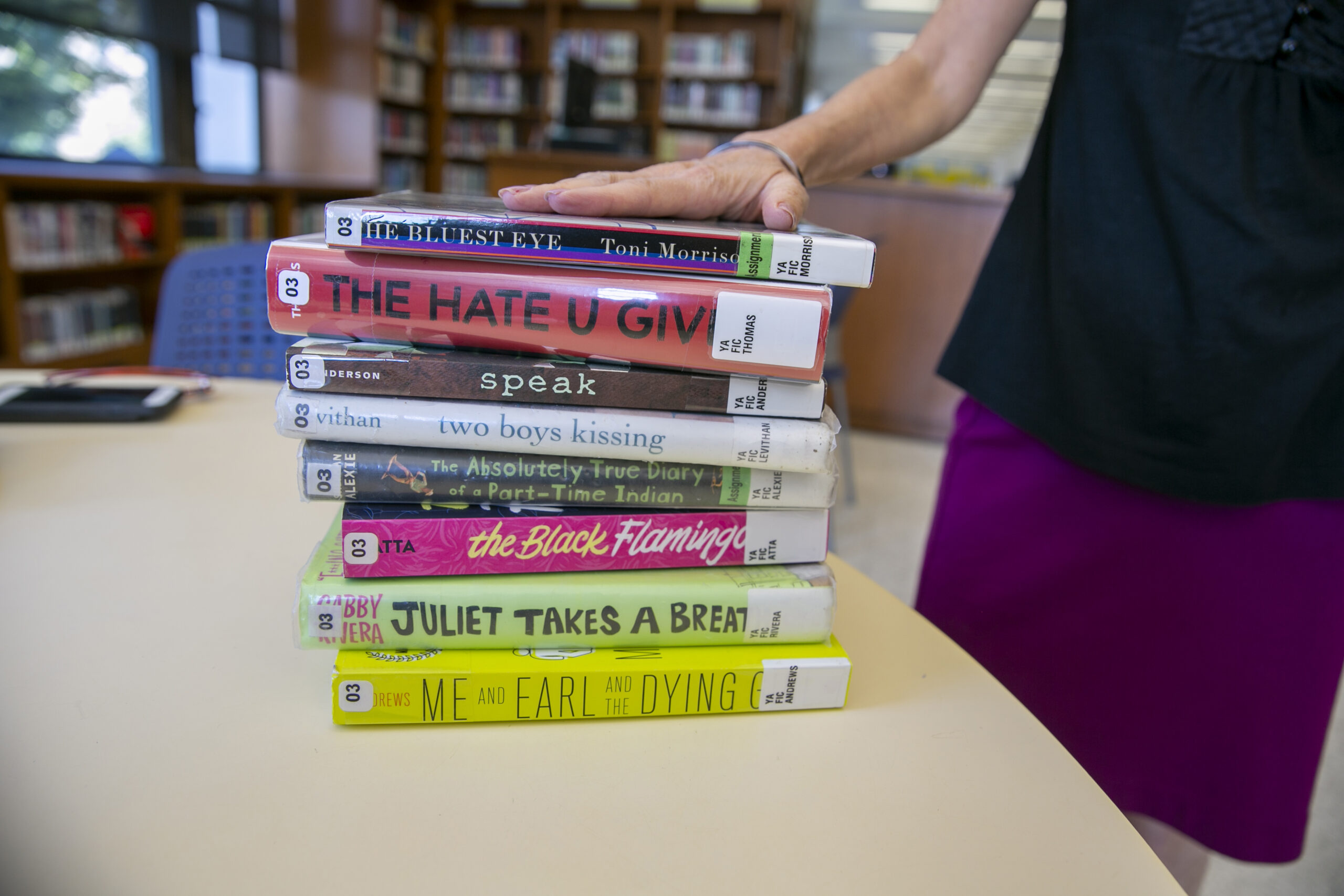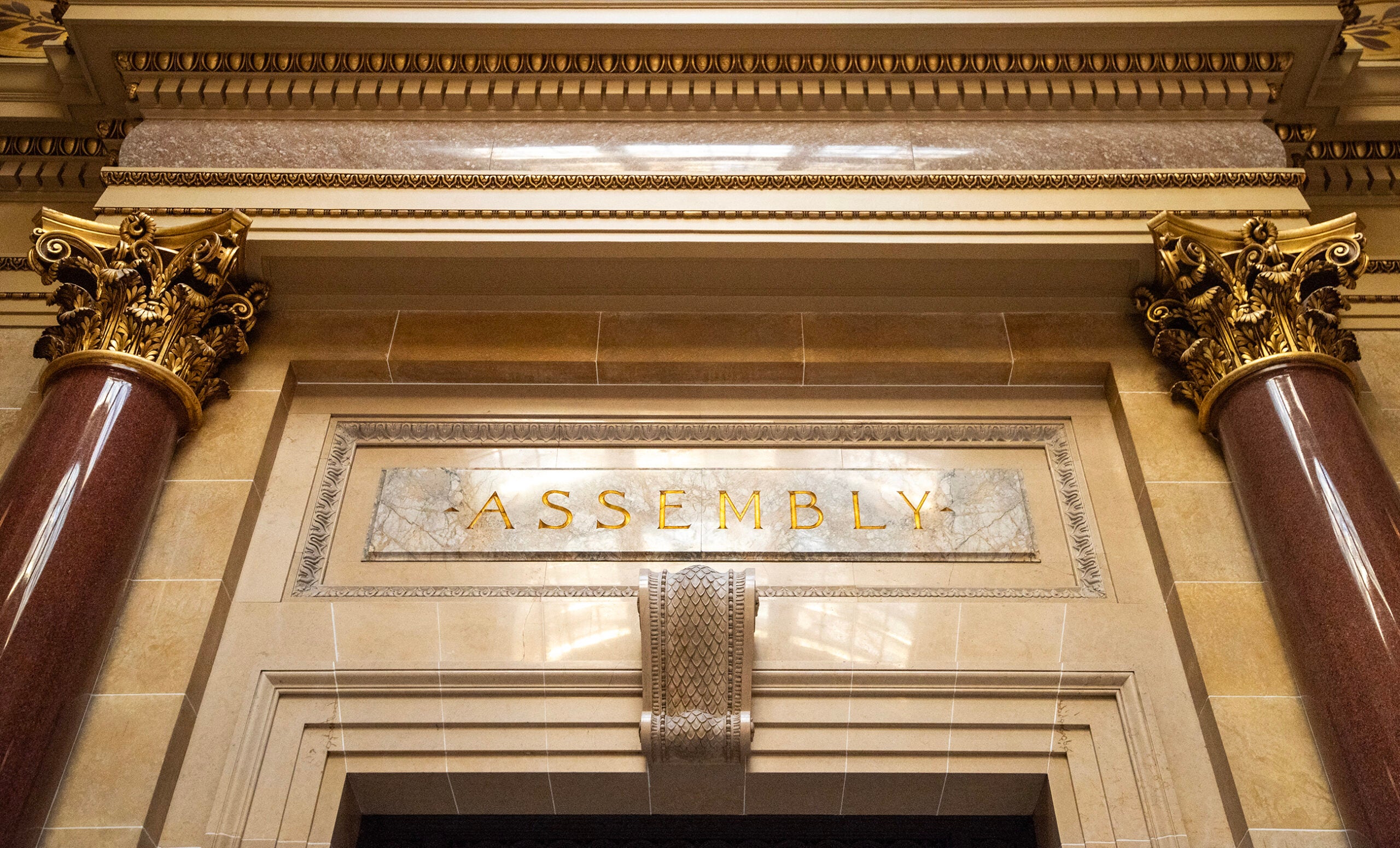Republican lawmakers are proposing a bill that would target “obscene” materials in school libraries and overturn a law that protects public and private school employees from prosecution for distributing the materials.
A companion bill would prohibit a school district from using school library aid money to purchase any item that could be considered obscene.
State Rep. Scott Allen, R-Waukesha, who co-sponsored both bills, said the state holds the “burden of responsibility” to make sure schools aren’t pushing obscenity limits.
News with a little more humanity
WPR’s “Wisconsin Today” newsletter keeps you connected to the state you love without feeling overwhelmed. No paywall. No agenda. No corporate filter.
Obscenity will be determined by state statute, Allen said. The state obscenity law describes various types of sexual conduct and says the acts depicted must be “patently offensive by contemporary community standards.” The material also must lack “serious literary, artistic, political, educational or scientific value.”
Currently, it is a crime to import, print, sell, possess for sale, publish, exhibit, play or distribute any obscene material. But librarians, elementary, secondary and private school teachers are exempt. The companion bill would change that.
“This bill tries to zero in and say it’s hard to argue there is a literary value to something sexual in nature to something delivered to elementary or middle schoolers,” Allen said.
Kyle Davis has a son going into sixth grade at Golda Meir School and a son going into first grade at Clement Avenue School, both part of Milwaukee Public Schools.
Davis said he has never been worried and does not believe anything at a school library would qualify as obscene. He said he believes lawmakers are trying to oppress free speech, and should let teachers decide what materials are best for students.
“They are highly trained individuals who are doing their job,” Davis said. “They are getting material for whatever age group they are working with and they should not be prosecuted for doing their job.”
The country started to see a surge in effort to ban books in schools and public libraries in 2021, particularly with restrictions to books containing LGBTQ+ and racial content.
That effort has continued. There were 1,477 instances of books banned across the country in the first half of the 2022-23 school year, according to the nonprofit PEN America. Of those, 30 percent were about race, racism or featured a person of color. Twenty-five percent had LGBTQ+ characters or themes.
Allen said these bills are not about banning books, LGBTQ+ or racial issues, but rather having school boards and districts more closely monitor materials to determine if it meets the community standard of obscenity.
“That’s a misplaced fear, and unfortunately where we are in politics these days,” Allen said. “I think there is a strong case to be made that there has to be a strong educational value. In the event that there isn’t, I think we should take a step back and say, ‘Is this really of educational value or do I want to risk it?’”
Allen said teachers should be held to the same standards as everyone else. If a school employee is determined to be distributing obscene materials, the school board will review the complaint.
From there, it would go to the county district attorney’s office and then the state attorney general, per state statute.
The proposed bills have been referred to the state Senate Committee on Education.
Davis, the Milwaukee father, said he hopes lawmakers remember school libraries are sometimes the only place children can access books and other materials.
“Sometimes they might be embarrassed if a parental unit or guardian is there, so the school library is there for kids who have nothing else,” Davis said. “Nothing should be banned at all. It is there for kids that need that material for whatever reason.”
Wisconsin Public Radio, © Copyright 2025, Board of Regents of the University of Wisconsin System and Wisconsin Educational Communications Board.







